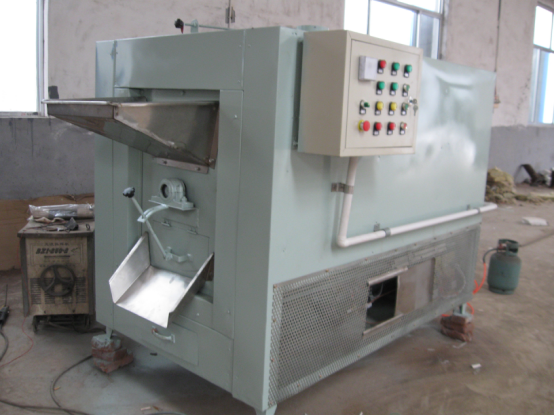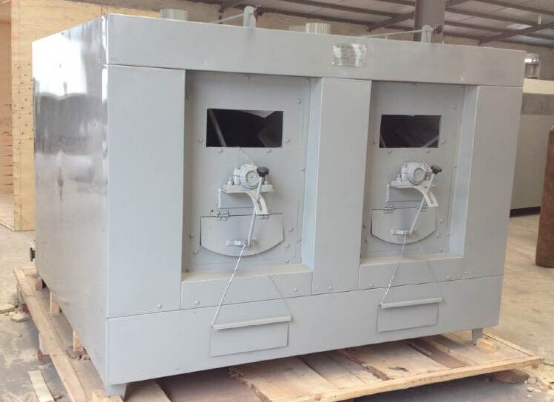In the case of the United States on China's tires special security case, the China Rubber Industry Association may wish to "treat its own people in its own way."
Yesterday, the association’s secretary-general Deng Yaxi revealed during an interview that the association would recommend the Chinese government to take anti-sanction measures, including increasing tariffs on certain products imported into the United States, or restricting imports until they are not imported. At present, the association is studying anti-sanction measures on this matter. After completing the research, it will draft relevant proposals and formally report to the Ministry of Commerce through written measures.
"The reason for the United States is not established."
“Next, we must also communicate and coordinate with prominent Americans and parliamentarians through various channels.†Cai Weimin, head of the Chinese industrial delegation to the United States and secretary of the tire committee of the China Rubber Industry Association, interviewed this reporter yesterday. Said.
From August 3rd to August 8th, a total of 9 delegations of China's domestic tire industry visited the U.S. Department of Commerce, the Ministry of Finance, the Ministry of Labor, the U.S. Department of State, and the U.S. Trade Representative Office, and conducted a visit to the United States “tire special security caseâ€. Related lobbying.
Deng Yaluo said that the reasons why China’s tire exports to the United States caused damage to its tire industry are not established and there is no need to talk about the export quotas and export tariffs with the US.
It is recommended to increase the tariffs on U.S. exports
Cai Weimin said that the Chinese government will be required to take anti-sanction measures against the United States, and the association will report anti-sanction proposals.
What kind of anti-sanction proposals will be made by the China Rubber Industry Association? According to Deng Yaluo, the association’s proposal is mainly to increase tariffs on China’s imports of U.S. products, or to restrict the import of some products until they are not imported.
“For example, China can raise the tariffs on imports of US soybeans, pork, and other products. Counter-products are not confined to the rubber industry,†said Deng Yaxi.
Zhao Yumin, director of the International Market Research Department of the Institute of International Trade and Economic Cooperation of the Ministry of Commerce, said that the association has this right to propose, and soybeans and pork are indeed products that China imports into the United States.
China is now the world's largest soybean importer. According to customs statistics, in the first five months of this year, China imported 11.14 million tons of soybeans from the United States, an increase of 33.7%, accounting for more than 60% of the total soybean imports in the same period in China.
According to the US Department of Agriculture, the number of imported soybeans in China will reach 38.1 million tons in 2009 and 2010. As a result, the number of US soybean exports will reach a record 1.26 billion bushels (a bushel of about 27 kilograms).
The U.S. is also a large country for traditional pork exports, and its export volume accounts for 30% of the world's total trade volume. In April, China’s imports of pork from the United States exceeded the EU, reaching 5,554 tons, worth US$6.155 million.
Countering more is just a strategy
According to Zhao Yumin, in international trade disputes, such anti-sanction measures are also a way to solve the problem, but more should be a strategic one.
Zhao Yumin said that if the above anti-sanction measures are adopted, the relevant industry associations in the United States will also raise their dissatisfaction, and they may also take some corresponding measures.
"Now the economic interdependence between countries is very close. When sanctions are imposed, it will hurt relevant interests. It is not that simple," said Zhao Yumin.
In this regard, Deng Yaluo frankly said that if the countermeasures are implemented, it will be difficult to assess how effective they can be. However, this measure will exert pressure on the U.S. government and U.S. President Barack Obama. At the latest, on September 17, Obama will decide whether or not to implement special safeguard measures for tires imported into China.
Zhao Yumin believes that trade disputes between countries still need to be resolved through normal channels. If they believe that they are unfair, they can appeal to the WTO, provided that the President of the United States has approved this special safeguard measure. Reporter Yu Chunlai
Related Links
Tyre protection progress
April 20: The American Steel Workers Association announces that it has filed an application to the US International Trade Commission (ITC) for a special safeguard measure against Chinese commercial tires exported to the United States, requesting the U.S. government to export to China for buses, light trucks, minivans and 21 million tires for sports cars are subject to import quota restrictions.
April 29: The U.S. International Trade Commission announced in the Federal Register the launch of an investigation into China's tire products. The Chinese government expresses its strong dissatisfaction and firmly opposes this.
June 18: The US International Trade Commission made a definitive damages ruling on China's passenger vehicle and light truck tire special protection case, and determined that the Chinese tire product imports have increased substantially, causing or threatening the disruption of the domestic industry's market. The Chinese government deeply regrets this.
June 29: The US International Trade Commission took special safeguard measures against Chinese tires and proposed a three-year special tariff on Chinese-made tires for passenger cars and light trucks. Additional tariffs for the first year to the third year They were 55%, 45%, and 35% respectively.
August 7: The U.S. Trade Representative's Office held a hearing in Washington and heard opinions from all parties regarding the “China Tyre Special Protection Case for Americansâ€. This is the second time that the United States has heard the special security case.
September 2: The U.S. Trade Representative Office will make recommendations to Obama after consulting with the Ministry of Finance, the Ministry of Labor, and the Ministry of Commerce.
September 17: U.S. President Barack Obama will make a final decision after synthesizing opinions from all parties.
Brief introduction
This machine is mainly for composed of driving device, electricity heating pipes, power control box, rolling drum box etc.
Technical parameter
|
Model |
Size (mm) |
Capacity (kg/h) |
Motor power |
Electrical heating power |
Gas heating power |
Weight |
|
SL-1 |
3000*1200*1700mm |
80-120 |
1.1kw |
18kw |
0.9-2kw |
700kg |
|
SL-2 |
3000*2200*1700mm |
180-250 |
2.2kw |
35kw |
1.8-3kw |
1500kg |
|
SL-3 |
3000*3300*1700mm |
280-350 |
3.5kw |
45kw |
2.6-4kw |
2100kg |
|
SL-4 |
3000*4400*1700mm |
380-450 |
4.4kw |
60kw |
4-6kw |
2900kg |
|
SL-5 |
3000*5500*1700mm |
500-650 |
5.5kw |
75kw |
6-8kw |
4000kg |
|
SL-6 |
3000*6600*1700mm |
700-800 |
6.6kw |
100kw |
15kw |
5000kg |


Commercial Roasting Machine,Machine For Roasting Nuts,Cashew Nut Roasting Machine,Commercial Nut Roaster
Zhengzhou Solon Import & Export Trading Co., Ltd , http://www.fruit-machinery.com
